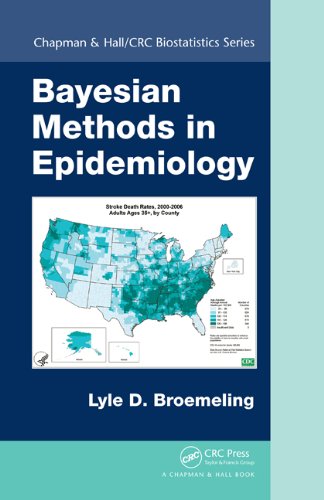

Most ebook files are in PDF format, so you can easily read them using various software such as Foxit Reader or directly on the Google Chrome browser.
Some ebook files are released by publishers in other formats such as .awz, .mobi, .epub, .fb2, etc. You may need to install specific software to read these formats on mobile/PC, such as Calibre.
Please read the tutorial at this link: https://ebookbell.com/faq
We offer FREE conversion to the popular formats you request; however, this may take some time. Therefore, right after payment, please email us, and we will try to provide the service as quickly as possible.
For some exceptional file formats or broken links (if any), please refrain from opening any disputes. Instead, email us first, and we will try to assist within a maximum of 6 hours.
EbookBell Team

4.8
24 reviewsWritten by a biostatistics expert with over 20 years of experience in the field, Bayesian Methods in Epidemiology presents statistical methods used in epidemiology from a Bayesian viewpoint. It employs the software package WinBUGS to carry out the analyses and offers the code in the text and for download online.
The book examines study designs that investigate the association between exposure to risk factors and the occurrence of disease. It covers introductory adjustment techniques to compare mortality between states and regression methods to study the association between various risk factors and disease, including logistic regression, simple and multiple linear regression, categorical/ordinal regression, and nonlinear models. The text also introduces a Bayesian approach for the estimation of survival by life tables and illustrates other approaches to estimate survival, including a parametric model based on the Weibull distribution and the Cox proportional hazards (nonparametric) model. Using Bayesian methods to estimate the lead time of the modality, the author explains how to screen for a disease among individuals that do not exhibit any symptoms of the disease.
With many examples and end-of-chapter exercises, this book is the first to introduce epidemiology from a Bayesian perspective. It shows epidemiologists how these Bayesian models and techniques are useful in studying the association between disease and exposure to risk factors.